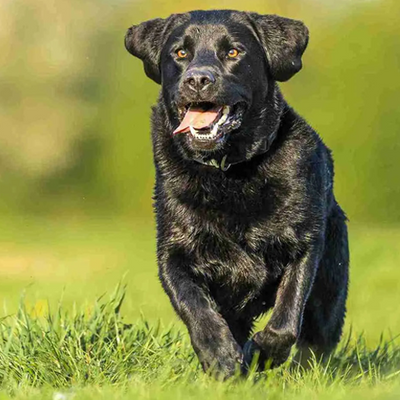The Shih Tzu Companion Guide
Quick take: Shih Tzus are affectionate, friendly, and people-loving companion dogs known for their flowing coat, sweet temperament, and adaptability to relaxed lifestyles. They thrive with close human interaction, light daily activity, and consistent grooming to keep their coat comfortable and healthy.
Want to explore more breeds? Visit the full hub here: Top 50 Purebred Dog Guide.
1. Introduction to the Breed
The Shih Tzu is a small companion breed bred specifically to be a loving lap dog. Calm yet playful, they’re well-suited for apartments, families, and seniors alike. Shih Tzus enjoy short play sessions followed by plenty of relaxation and are happiest when included in everyday life.
2. History of the Breed
Shih Tzus originated in ancient China, where they were bred as companion dogs for Chinese royalty. Often associated with palace life, they were prized for their affectionate nature and distinctive appearance. The breed was introduced to the Western world in the early 20th century and quickly became popular as a devoted companion.
3. Physical Characteristics
Typical Size and Weight
Shih Tzus are small dogs, typically standing 9–10.5 inches tall and weighing between 9–16 pounds. Their sturdy build supports a relaxed but confident presence.
Coat and Color
Shih Tzus have a long, flowing coat that grows continuously rather than shedding like fur. Coat colors vary widely and include gold, white, black, brindle, and combinations of several colors. Regular grooming is essential to prevent tangles.
Distinctive Features
A short muzzle, large dark eyes, and a plumed tail carried over the back give the Shih Tzu its unmistakable look. Their facial structure contributes to their charm but also requires mindful care in warm weather.
4. Personality Traits
Shih Tzus are affectionate, gentle, and sociable. They typically enjoy meeting people and do well with children and other pets when handled respectfully. While not high-energy, they are playful and enjoy short bursts of activity throughout the day.
5. Care Requirements
Exercise Needs
Shih Tzus have low exercise needs. Short daily walks and indoor play sessions are usually sufficient to keep them healthy and mentally stimulated.
Grooming Needs
Grooming is a major part of Shih Tzu care. Their long coat should be brushed daily if kept long, or several times per week if trimmed shorter. Regular eye cleaning, ear checks, nail trims, and dental care are also important.
LibertyPaw Grooming Pick for Shih Tzus
A long, silky coat benefits from a gentle grooming tool that detangles without pulling. A quality comb helps prevent mats around the face, ears, legs, and tail while keeping grooming sessions comfortable.
Shop Grooming Tool for Shih Tzus
Prefer browsing? Explore the full grooming lineup here: LibertyPaw Pet Grooming Products
Dietary Considerations
Shih Tzus do best on high-quality small-breed diets that support digestion and coat health. Portion control helps prevent weight gain, and many owners divide meals into two smaller feedings per day.
6. Health and Lifespan
Shih Tzus typically live 10–16 years. Common health concerns include dental disease, eye issues, brachycephalic airway sensitivity, and joint problems. Regular veterinary care and preventive grooming support long-term health.
7. Training and Socialization
Shih Tzus are intelligent but can be independent. Positive reinforcement training with patience and consistency works best. Early socialization helps them grow into confident, friendly adults.
8. Ideal Home Environment
Shih Tzus adapt exceptionally well to apartments and small homes. They prefer calm environments, close companionship, and protection from extreme heat due to their short muzzle.
9. The Best Dog Bed for a Shih Tzu
Shih Tzus love cozy, cushioned beds that provide warmth and security. A supportive bed protects small joints while giving them a comfortable place to relax.
Bolster-style beds allow Shih Tzus to curl up comfortably and feel secure.
Easy-to-clean materials are practical for everyday use.
For senior Shih Tzus, added cushioning helps improve comfort and rest quality.
Find the Right Bed for Your Shih Tzu
10. What’s the Best Toy for My Shih Tzu?
Shih Tzus enjoy lightweight toys that encourage gentle play, carrying, and interaction with their owners. Toys should be size-appropriate and soft on small mouths.
LibertyPaw Toy Picks for Shih Tzus
Toy Pick #1: LibertyPaw Plush Hydrant Dog & Cat Toy
Soft and lightweight, this plush toy is ideal for indoor play, comfort, and gentle interaction.
Toy Pick #2: LibertyPaw Liberty Bell Dog & Cat Toy
A small, engaging toy that encourages curiosity and gentle play without overwhelming a small dog.
Want more USA-made options? Browse the full toy collection: LibertyPaw American-Made Pet Toys
11. Adoption and Breeder Tips
When choosing a Shih Tzu, look for breeders who prioritize temperament, eye health, and dental care. Ask about early socialization and grooming routines. Shih Tzu rescue organizations are also excellent options for adopting a loving, people-focused companion.
Disclaimer: This breed guide is intended for general informational purposes only and does not replace professional veterinary advice, diagnosis, or treatment. Every dog is unique, and individual needs may vary based on age, health, activity level, and environment. Always consult a licensed veterinarian or qualified canine professional before making changes to your dog’s diet, exercise routine, grooming regimen, or health care.






0 comments